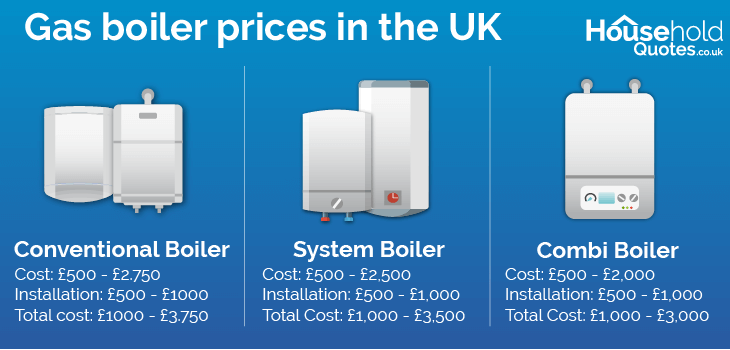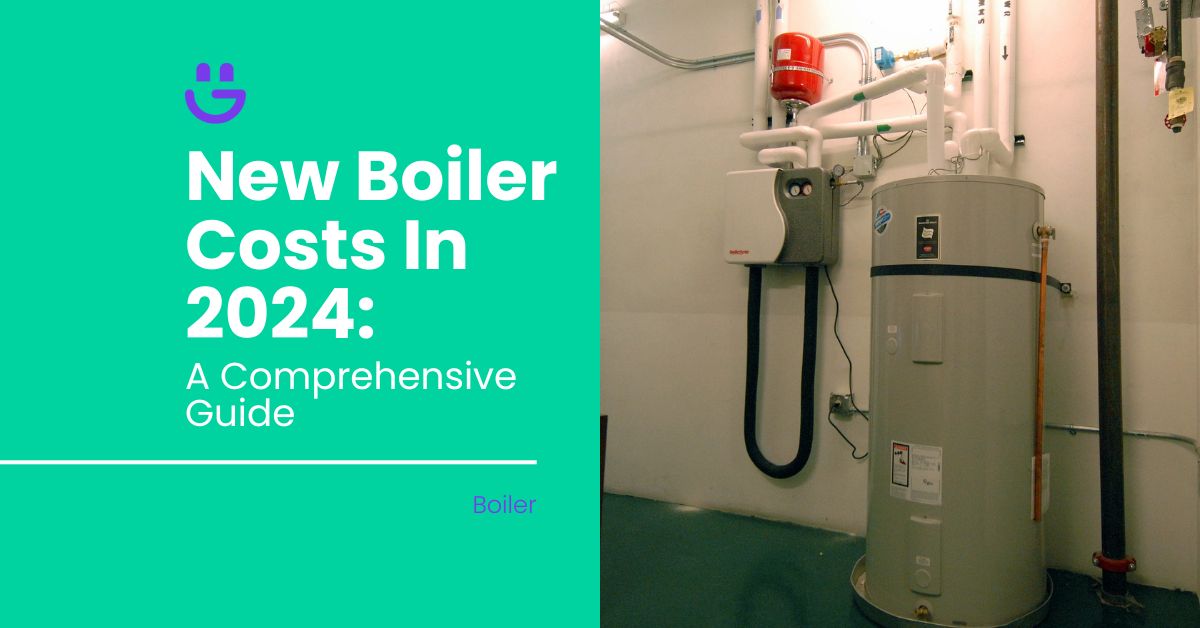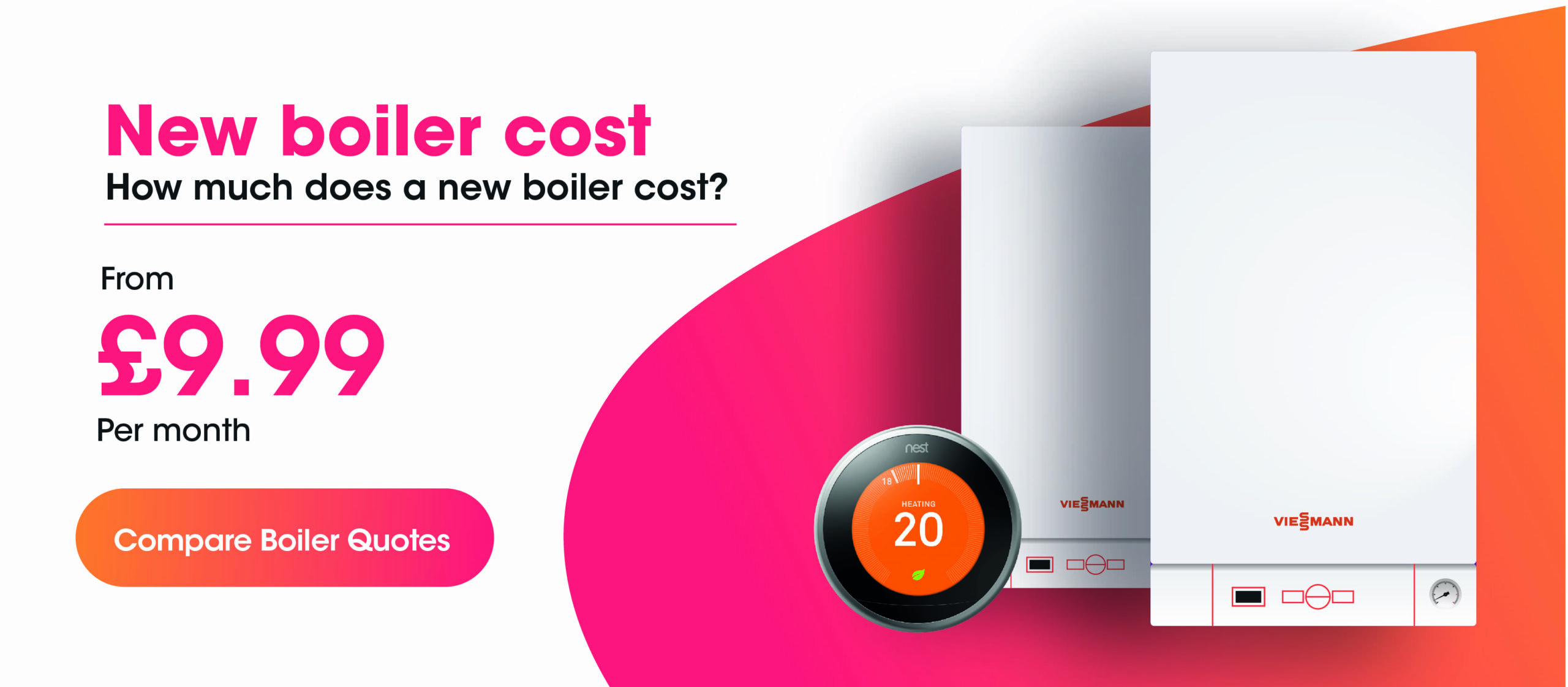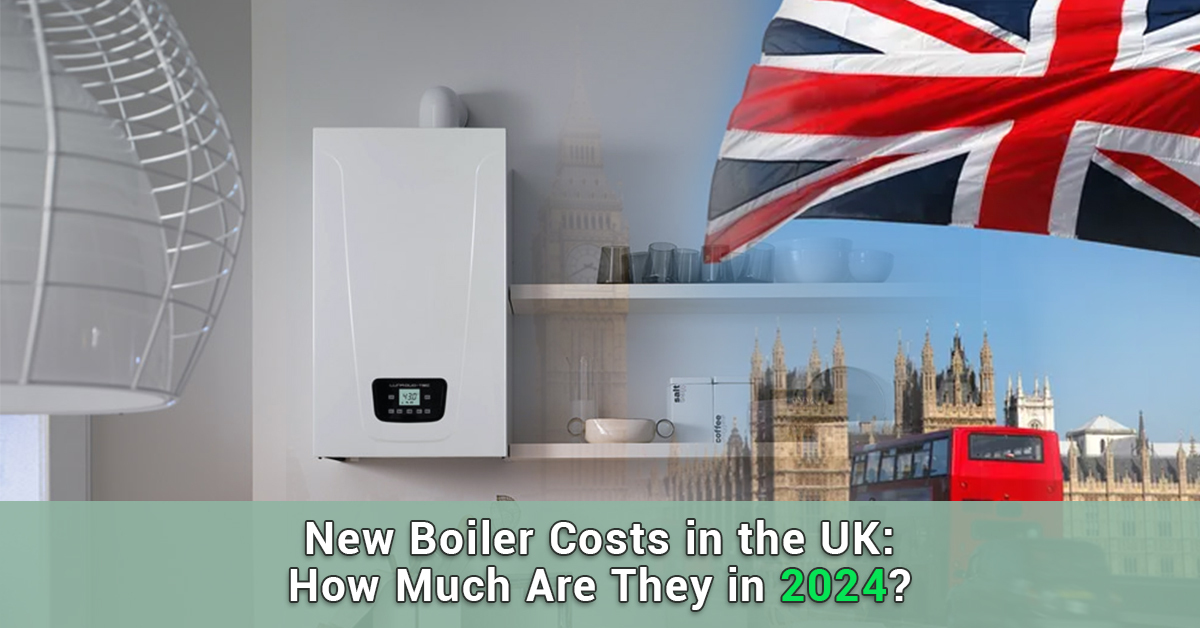Cost Of A New Boiler For A House

Frequently Asked Questions About the Cost of a New Boiler
Replacing a boiler is a significant investment for any homeowner or facility manager. Understanding the factors influencing the cost and knowing what to expect can make the process smoother and more informed. This FAQ addresses common questions to help you navigate the decision.
Question 1: What is the average cost of a new boiler installation for a house?
The average cost to install a new boiler in a house typically ranges from $3,000 to $10,000. This is a broad range because several factors influence the final price, including the type of boiler, its size (BTU rating), the complexity of the installation, and your location. A simple replacement might be on the lower end, while a completely new installation or a switch to a different type of boiler could be on the higher end.
Here's a breakdown to give you a better idea:
- Basic Boiler Replacement (like-for-like): $3,000 - $6,000
- Standard Efficiency Boiler Installation: $4,000 - $8,000
- High-Efficiency Boiler Installation (Condensing): $5,000 - $10,000+
These prices generally include the cost of the boiler itself, labor for installation, and necessary materials like piping and fittings. However, remember that these are just averages, and obtaining multiple quotes from qualified contractors is crucial for an accurate estimate tailored to your specific needs.
Question 2: What factors contribute to the overall cost of a new boiler?
Several factors play a significant role in determining the total cost of a new boiler installation. Understanding these factors will help you anticipate expenses and make informed decisions.
- Type of Boiler: Different types of boilers have varying price points. Combi boilers (combination boilers providing both heating and hot water on demand) are often more expensive than conventional boilers (heat-only boilers). High-efficiency condensing boilers, while more costly upfront, offer long-term savings through reduced energy consumption.
- Boiler Size (BTU Rating): The British Thermal Unit (BTU) rating indicates the heating capacity of the boiler. A larger house or a higher heating demand will require a boiler with a higher BTU rating, increasing the cost. It's crucial to have a professional assess your heating needs to determine the appropriate size. Oversized boilers are inefficient and wasteful, while undersized boilers won't adequately heat your home.
- Installation Complexity: A straightforward like-for-like replacement (replacing an old boiler with a similar model in the same location) is generally less expensive than a new installation or a conversion from one type of boiler to another. Factors that increase complexity include:
- Relocating the boiler
- Upgrading or replacing existing piping
- Installing a new venting system
- Adding or modifying radiators
- Brand and Model: Boiler brands vary in price and reputation. Well-known, reputable brands often come with a higher price tag but may offer better reliability and warranty coverage. Similarly, different models within a brand can have varying features and efficiency levels, affecting the cost.
- Efficiency Rating: High-efficiency boilers, especially condensing boilers, typically have a higher initial cost but offer significant savings on energy bills over their lifespan. Look for boilers with a high Annual Fuel Utilization Efficiency (AFUE) rating – the higher the AFUE, the more efficient the boiler.
- Labor Costs: Labor costs can vary depending on the contractor's experience, location, and the complexity of the installation. It's essential to get quotes from multiple contractors to compare pricing and ensure you're getting a fair rate. Make sure the contractor is licensed and insured.
- Additional Components and Upgrades: Consider the cost of additional components or upgrades, such as:
- New thermostats (especially smart thermostats)
- System filters to protect the boiler from debris
- Chemical inhibitors to prevent corrosion
- Power flushing to clean the existing heating system
- Permits and Inspections: Depending on your location, you may need to obtain permits and have the installation inspected by a local authority. These costs should be factored into your budget.
- Location: Labor and material costs can vary significantly depending on your geographic location. Areas with a higher cost of living generally have higher installation costs.
Question 3: What are the different types of boilers, and how do their costs compare?
Boilers are categorized based on their technology and how they operate. Each type has its own advantages and disadvantages in terms of cost, efficiency, and suitability for different homes.
- Conventional Boilers (Heat-Only Boilers): These boilers heat water and store it in a hot water tank for later use. They are typically less expensive to install than combi boilers but require more space for the tank. Suitable for homes with high hot water demand and traditional heating systems. Cost: Generally the least expensive option.
- Combi Boilers (Combination Boilers): Combi boilers provide both heating and hot water on demand, eliminating the need for a separate hot water tank. They are space-saving and efficient, but may not be suitable for homes with very high hot water demand. Cost: Moderately expensive, but can save space and energy.
- Condensing Boilers: Condensing boilers are high-efficiency models that recover heat from the exhaust gases that would normally be lost. They are more expensive upfront but offer significant savings on energy bills over time. All new boilers sold in most regions are now condensing boilers due to efficiency regulations. Cost: Most expensive upfront, but offers long-term savings.
- Oil Boilers: Oil boilers use oil as their fuel source. They are an alternative to gas boilers in areas where natural gas is not available. Oil boilers are typically more expensive to operate than gas boilers due to the higher cost of oil. Cost: Similar to gas boilers in installation cost, but more expensive to operate.
- Electric Boilers: Electric boilers use electricity to heat water. They are generally less efficient than gas or oil boilers and can be more expensive to operate, especially in areas with high electricity rates. However, they are cleaner and require less maintenance. Cost: Relatively inexpensive to install, but can be expensive to operate.
When comparing costs, consider not only the initial purchase price but also the long-term operating costs and potential savings from energy efficiency.
Question 4: Can I reduce the cost of a new boiler installation?
While a new boiler installation is a significant expense, there are several ways to potentially reduce the cost without compromising on quality or safety.
- Get Multiple Quotes: This is the most important step. Obtain quotes from at least three qualified contractors. Comparing quotes will give you a better understanding of the market rate and allow you to negotiate.
- Choose a Simpler Installation: If possible, opt for a like-for-like replacement in the same location. Avoid relocating the boiler or making significant changes to the heating system, as this will increase labor costs.
- Consider a Less Expensive Brand or Model: While it's important to choose a reliable boiler, you may be able to save money by opting for a less well-known brand or a model with fewer features. Research different brands and models to find one that meets your needs and budget.
- Look for Rebates and Incentives: Check with your local utility company and government agencies for rebates and incentives on high-efficiency boilers. These programs can significantly reduce the upfront cost.
- Finance Options: Explore financing options offered by contractors or financial institutions. Some programs offer low-interest loans or payment plans to make the installation more affordable.
- Negotiate with the Contractor: Don't be afraid to negotiate the price with the contractor. Ask if they offer discounts for cash payments or if they can price-match a lower quote from another contractor.
- Schedule the Installation During Off-Peak Season: Boiler installation companies are often less busy during the spring and summer months. You may be able to negotiate a lower price during these off-peak seasons.
- Consider a Refurbished Boiler (with Caution): While a refurbished boiler can be significantly cheaper, it's important to proceed with caution. Ensure the boiler has been properly inspected and certified by a qualified technician, and that it comes with a warranty. This option is generally not recommended unless you have a very limited budget and a trusted source.
- Properly Insulate Your Home: While not directly related to the boiler cost, improved insulation can reduce your heating demand, potentially allowing you to choose a slightly smaller (and less expensive) boiler.
Question 5: What are the long-term cost implications of a new boiler?
While the initial cost of a new boiler is a significant consideration, it's equally important to consider the long-term cost implications. A more efficient boiler can save you money on energy bills for years to come.
- Energy Savings: High-efficiency boilers, especially condensing boilers, can significantly reduce your energy consumption. This translates to lower monthly heating bills and substantial savings over the boiler's lifespan. Calculate the potential energy savings based on the boiler's AFUE rating and your current energy usage.
- Maintenance Costs: Newer boilers typically require less maintenance than older models. However, it's still important to schedule regular maintenance to ensure optimal performance and prolong the boiler's lifespan. Factor in the cost of annual servicing when evaluating long-term costs.
- Repair Costs: While newer boilers are generally more reliable, they can still experience breakdowns. A good warranty can protect you from unexpected repair costs. Consider the cost of potential repairs and the availability of replacement parts.
- Lifespan: The average lifespan of a boiler is 15-20 years. Choosing a high-quality boiler from a reputable brand can ensure that it lasts for many years, maximizing your investment.
- Property Value: Installing a new, high-efficiency boiler can increase the value of your home. This can be a significant benefit if you plan to sell your home in the future.
- Environmental Impact: High-efficiency boilers reduce your carbon footprint by consuming less energy. This can be a significant benefit for environmentally conscious homeowners.
By considering these long-term factors, you can make a more informed decision about which boiler is the best investment for your home.
Question 6: How do I choose a reliable boiler installation company?
Choosing the right installation company is just as important as choosing the right boiler. A qualified and experienced contractor will ensure that the boiler is installed correctly and safely, maximizing its efficiency and lifespan.
- Check for Licensing and Insurance: Ensure that the company is properly licensed and insured. This protects you from liability in case of accidents or damages during the installation.
- Read Reviews and Testimonials: Look for online reviews and testimonials from previous customers. This can give you an idea of the company's reputation and quality of work.
- Ask for References: Ask the company for references from previous customers. Contact the references to inquire about their experience with the company.
- Verify Certifications: Look for certifications from reputable organizations, such as NATE (North American Technician Excellence). These certifications demonstrate the company's expertise and commitment to quality.
- Get a Written Estimate: Obtain a detailed written estimate that includes the cost of the boiler, labor, materials, and any additional fees. Make sure the estimate is clear and comprehensive.
- Ask About Warranty: Inquire about the warranty on the boiler and the installation work. A good warranty will protect you from unexpected repair costs.
- Consider Experience: Choose a company with a proven track record and years of experience in boiler installation. An experienced company is more likely to have the knowledge and skills necessary to handle any challenges that may arise during the installation.
- Evaluate Communication: Assess the company's communication skills. A reliable company will be responsive to your inquiries, provide clear and concise information, and keep you informed throughout the installation process.
- Ensure Proper Sizing: A reputable company will perform a heat load calculation to determine the appropriate size of boiler for your home. This ensures that the boiler is neither oversized nor undersized, optimizing efficiency and performance.
Question 7: What are the signs that I need to replace my boiler?
Knowing when to replace your boiler can prevent unexpected breakdowns and ensure that your home is heated efficiently. Here are some common signs that it may be time for a new boiler:
- Age: If your boiler is 15-20 years old or older, it's likely nearing the end of its lifespan. Older boilers are often less efficient and more prone to breakdowns.
- Frequent Repairs: If you're constantly calling for repairs, it may be more cost-effective to replace the boiler. Frequent repairs indicate that the boiler is deteriorating and may soon fail completely.
- Rising Energy Bills: If your energy bills are steadily increasing despite no changes in your heating habits, your boiler may be losing efficiency. A new, high-efficiency boiler can significantly reduce your energy consumption.
- Strange Noises: Unusual noises, such as banging, whistling, or gurgling, can indicate problems with the boiler. These noises may be caused by mineral buildup, leaks, or other issues.
- Leaking: Any signs of leaks, whether from the boiler itself or the surrounding pipes, should be addressed immediately. Leaks can cause water damage and indicate serious problems with the boiler.
- Reduced Heating Efficiency: If your home is not being heated as effectively as it used to be, your boiler may be losing efficiency. This could be due to a variety of factors, such as a faulty thermostat, clogged pipes, or a malfunctioning burner.
- Yellow Flame: A healthy boiler flame should be blue. A yellow or orange flame indicates incomplete combustion, which can produce carbon monoxide, a dangerous gas. If you see a yellow flame, call a qualified technician immediately.
- Pilot Light Problems: If you're constantly having to relight the pilot light, there may be a problem with the gas valve or other components.
If you notice any of these signs, it's a good idea to have your boiler inspected by a qualified technician. They can assess the condition of your boiler and recommend whether it needs to be repaired or replaced.










